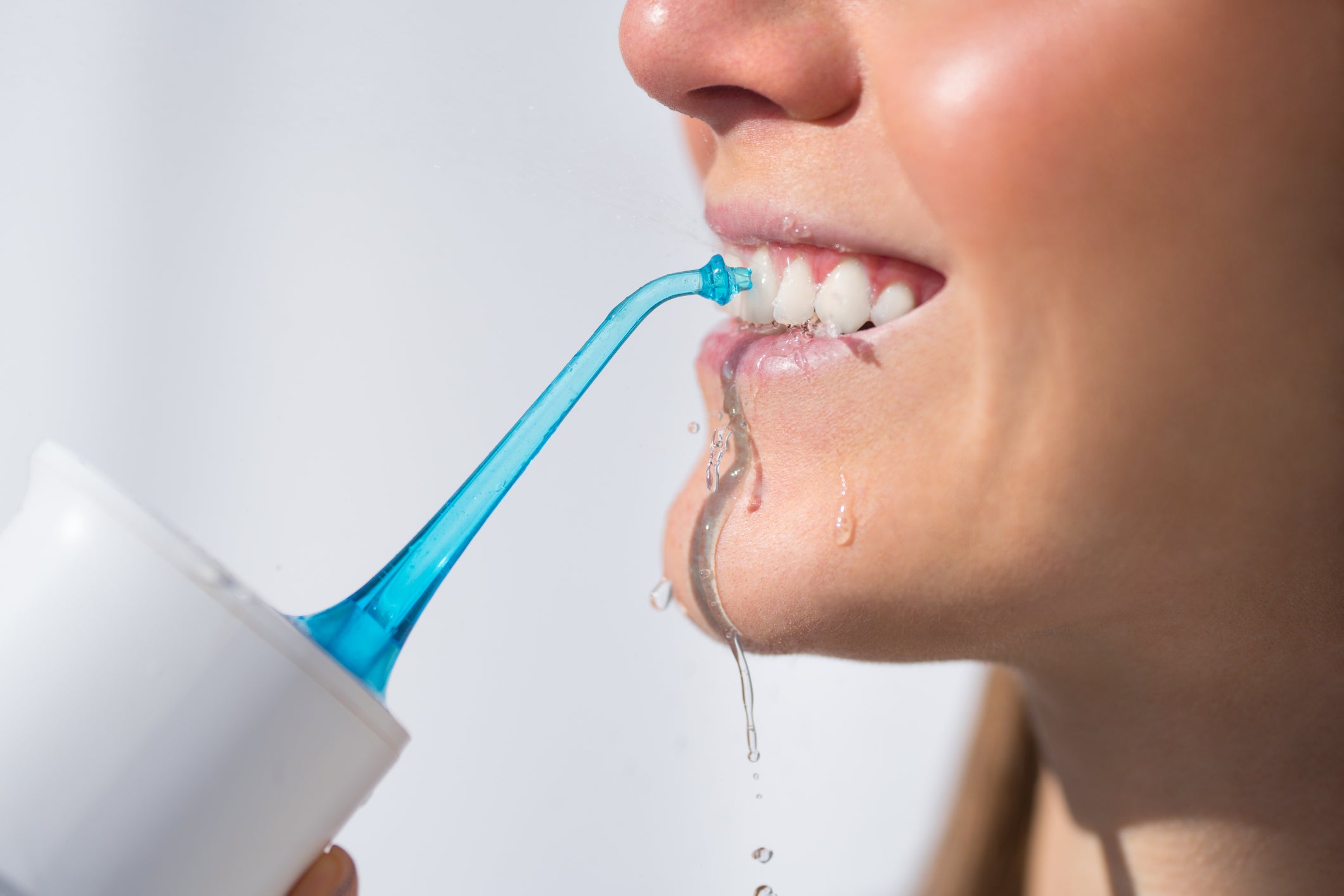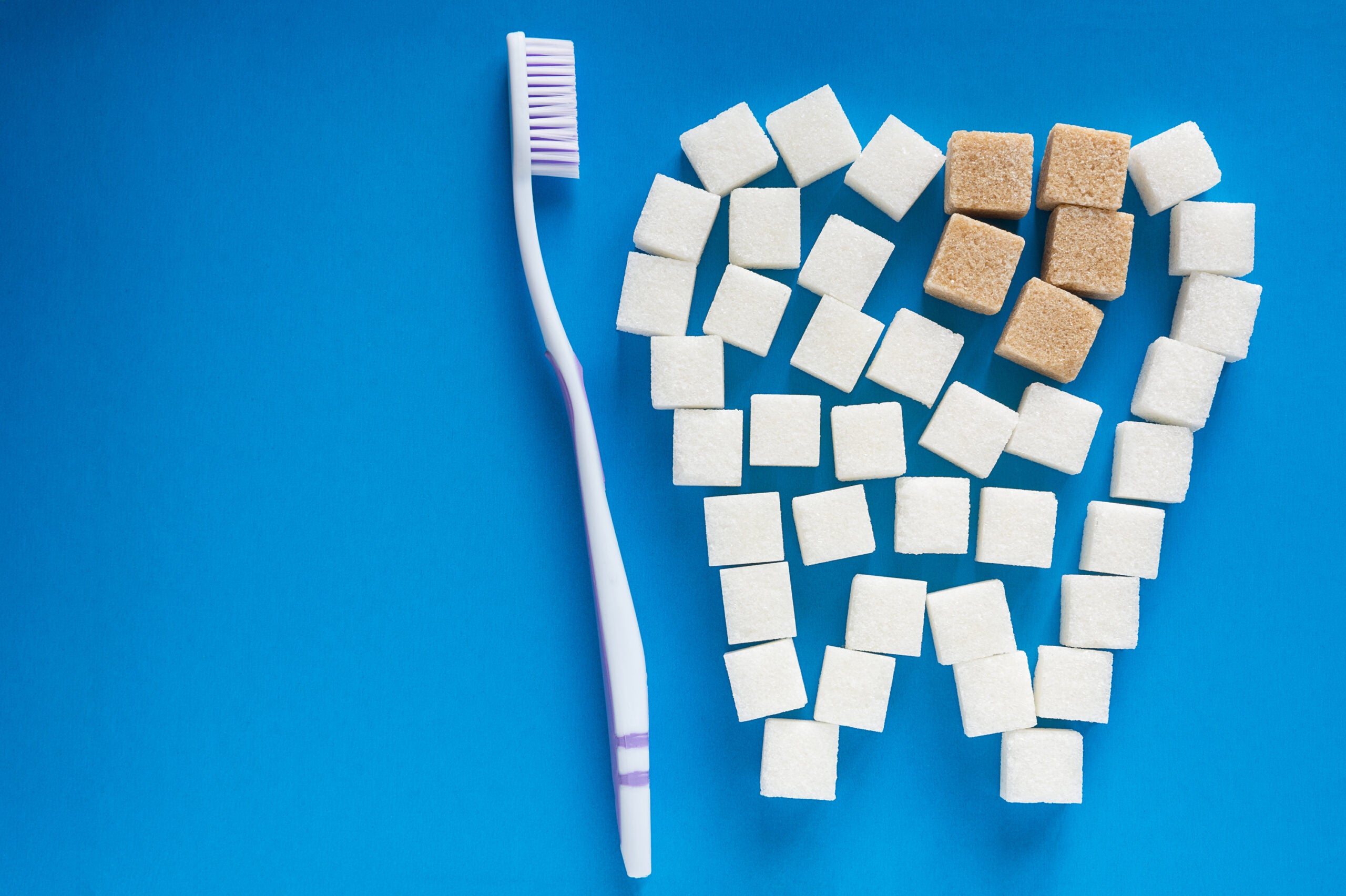-
Do Genetics Play a Role in Your Dental Health?

At Park 56 Dental, we understand that genetics play a role in your overall health, but did you know that it also plays a role in your dental health? While good oral hygiene habits can go a long way towards protecting your teeth and gums, genetics determine how predisposed you are to certain dental issues. Let’s break down the role of genetics in dental health.
Dental Caries
One of the most common dental problems is tooth decay or cavities. Cavities can be caused by poor oral hygiene habits, but they can also be a result of genetic factors. Studies have found that some people may develop more cavities than others due to their genetic makeup. For example, if you have a family history of cavities, then you may be more likely to develop them yourself.
Tooth Wear and Tear
In addition to cavities, tooth wear and tear can also be affected by genetics. Some people may be genetically predisposed to having weaker teeth than others which make them more prone to experiencing wear and tear earlier in life. This is especially true for those with thinner enamel which makes it harder for their teeth to withstand the pressures of daily activities like chewing and grinding.
Misaligned Teeth
One of the most common effects of genetics on oral health is misaligned (crooked) teeth. In many cases, crooked teeth are caused by genetic factors such as jaw size and shape, or even a difference in the length of two sides of the jaw. If you have crooked teeth, Park 56 Dental in New York can help with orthodontic treatments like braces and Invisalign® to help straighten them out.
Teeth Color
The color of your teeth is another trait that can be influenced by genetics. Some people have naturally whiter teeth than others due to inherited traits, while others may have naturally yellowish or grayish tints to their smile due to genetics as well. Park 56 Dental offers professional whitening services that can help brighten up any shade of smile.
Periodontal Disease
Genetics can also play a role in periodontal (gum) disease as well as other diseases such as diabetes and cancer that may affect your oral health. If you have any family members who have experienced gum disease or other serious dental problems, then you may be at an increased risk for developing these issues as well. It is important to keep track of any family history related to your dental health so that you can take steps to prevent any potential problems from occurring.
Reach Out to Park 56 Dental to Protect Your Smile!
The bottom line is that genetics do play a role in your dental health, but good oral hygiene habits are still important for keeping your teeth and gums healthy. So, if you want to protect yourself from potential dental problems down the road, make sure you brush twice daily, floss once daily, rinse with an antiseptic mouthwash regularly and visit Park 56 Dental at least twice a year for check-ups and cleanings! By taking these steps now, you’ll ensure that your smile remains healthy for many years to come!
-
Are Water Flossers Worth It?

If you’re looking for an effective way to improve your oral health, you may have heard about water flossers. But are they really worth it? Here at Park 56 Dental in New York, we can tell you the answer is yes. Let’s look at exactly why water flossers are so helpful and how they can make a difference in your smile.
What is a Water Flosser?
A water flosser is an oral hygiene device that uses pulsating streams of water to remove plaque, bacteria, and food particles from between teeth and under the gum line. It is often used as an alternative to traditional string flossing or floss picks for those who find it difficult to use them effectively.
Water Flossers Have the ADA Seal of Acceptance
Get your oral health on the right track by choosing a water flosser with the ADA Seal of Acceptance! With proven safety and effectiveness, these products can help reduce plaque buildup that leads to cavities and gum disease. Plus, they have been clinically tested to lower gingivitis–so you get fresh breath all day long no matter where you are in your smile journey! Check out this list for recommended ADA-Accepted water flossers.
Benefits of Water Flossing
Take your dental hygiene routine to the next level by adding water flossing to your routine. Water flossers are a revolutionary device that provide numerous benefits over traditional flossing:
- Improved Gum Health – Studies have shown that water flossers are significantly more effective at preventing gum disease than traditional string floss. This is because they deliver a steady stream of water directly into hard-to-reach areas of the mouth, making it easier to remove plaque and food particles from between the teeth and gums.
- Reduced Bleeding – Traditional string floss can cause your gums to bleed if used incorrectly or too aggressively, but this isn’t an issue with water flossers. The pressure from the stream of water is gentle enough that it won’t aggravate sensitive gums, and yet still powerful enough to remove plaque and food particles from between the teeth and gums.
- Time Savings – Traditional string floss takes time—sometimes up to 10 minutes—but with a water flosser, you can clean your entire mouth in just 60 seconds! This makes it much easier to fit into even the busiest of schedules.
- Versatility – Unlike traditional string floss, which can only be used on teeth, water flossers can be used anywhere in the mouth—including between teeth, along the gum line, and even on bridges and braces! It even comes with a variety of tip attachments for different types of cleaning needs (e.g., plaque removal, stain removal).
- Cost Savings – Although they may seem expensive upfront, when you factor in how much time they save you in your daily oral care routine, their cost quickly balances out over time since you don’t need to buy new supplies as often as with traditional string floss. Plus, since they last longer than regular string floss, there is less waste overall too!
We hope this article has helped you understand why using a water flosser is such an important part of any good oral hygiene routine! If you’re interested in learning more about how a water flosser can help improve your smile, please don’t hesitate to contact us here at Park 56 Dental in New York today! We look forward to helping you achieve the best possible results for your mouth and teeth!
-
How Regular Dental Visits Can Help Fight Diabetes

Diabetes is a serious disease that affects millions of people worldwide. While it is primarily managed through diet and medication, recent studies have shown that there may be another important factor–dental health. Regular dental visits can help to manage diabetes, as well as prevent the onset of diabetes in those who are at risk. Let’s take a closer look at how regular dental visits can help fight diabetes.
The Connection Between Oral Health and Diabetes
There is a strong connection between oral health and diabetes. When someone has poor oral hygiene, their chances of developing diabetes increase significantly. Poor oral hygiene can also lead to high blood sugar levels, which can worsen symptoms of existing diabetes. Regular dental visits are critical for those with diabetes because they allow dentists to identify potential problems early on so that they can be addressed before they become serious issues.
Oral Conditions Diabetes Can Cause or Worsen
Diabetes is a long-term condition that affects the body’s ability to produce or effectively use the hormone insulin. Unfortunately, diabetes can severely affect our oral health. Specifically, diabetes causes a decrease in saliva flow due to damaged salivary glands which can lead to an increase in dental cavities and gum inflammation. Additionally, diabetes prevents oxygen delivery resulting in delicate blood vessels that may break more easily causing dry mouth, recurrent infections and even delayed healing of wounds which can encourage overgrowth of bacteria. Therefore, people with diabetes need to pay close attention to their oral hygiene habits by brushing and flossing regularly, visiting the dentist twice a year for cleanings and professional checkups and reducing consumption of sweet substances to help manage diabetes related oral complications.
Regular Check-Ups Help Identify Potential Problems
Regular dental check-ups provide an opportunity for dentists to screen for signs of periodontal disease or other conditions that could indicate the onset of diabetes. For example, during a check-up your dentist may be able to spot signs of gum disease, which is linked to an increased risk for Type 2 diabetes. By identifying these potential issues early on, your dentist can work with you to develop an appropriate treatment plan and lifestyle changes that will help improve your overall wellbeing.
Good Oral Hygiene Can Help Manage Diabetes Symptoms
Good oral hygiene is essential for preventing the onset of Type 2 diabetes and managing the symptoms of existing cases. Brushing at least twice daily with fluoride toothpaste helps remove bacteria from teeth while flossing helps keep gums healthy by removing food particles stuck in between teeth where brushing cannot reach them. Additionally, limiting sugary snacks and drinks such as soda and processed foods will help lower blood sugar levels, which in turn reduces the risk for developing complications related to diabetes such as nerve damage or blindness.
Come Visit Park 56 Dental Today!
At Park 56 Dental in New York City we understand the importance of good dental hygiene in managing diabetes symptoms and preventing its onset. Our team specializes in providing preventive care services designed to detect any signs or symptoms associated with either condition before they become serious problems. We recommend scheduling regular check-ups so that our team can monitor your oral health closely and recommend any lifestyle changes if necessary. Contact us today to learn more about our services!
-
How to Protect Your Teeth When Playing Sports

Whether you’re a pro athlete or an avid weekend warrior, playing sports is fun and can be beneficial to your overall health. But it’s important to keep your teeth safe while playing too. There are a few simple measures that you can take to make sure your teeth stay healthy while you’re having fun on the field, court, or rink. Let’s take a look at why protecting your teeth is so important and how Park 56 Dental can help.
Why is it Important to Protect Your Teeth?
The primary reason for protecting your teeth when playing sports is to avoid dental injuries such as broken or chipped teeth, which can happen even if you wear the proper protective equipment. Injuries like these can not only cause pain but also lead to infection and require restorative dentistry treatments like crowns, bridges, or implants to restore functionality and aesthetics of the mouth. Additionally, athletes may suffer from temporomandibular joint (TMJ) problems or jaw fractures from taking hits in contact sports without adequate protection for their heads and mouths.
The Importance of Mouthguards
At Park 56 Dental we understand the importance of protecting yourself during physical activity. That’s why we offer customized athletic mouthguards that are specifically designed for each individual patient’s needs so they can play their sport safely and still perform well on the field. Our custom-made mouthguards provide superior protection compared to store-bought models because they are designed specifically for your mouth size and shape. We ensure that our mouthguards fit correctly and don’t hinder breathing or speaking during games or practices—so there’s no need to worry about missing out on any plays!
How Can I Protect My Teeth?
In addition to getting a custom-made athletic mouthguard from Park 56 Dental, there are other ways that you can protect your teeth when playing sports:
- Wear a helmet if applicable: Helmets are essential for contact sports like football, hockey, boxing, lacrosse, soccer etc., as they help protect both your head and face from serious injuries—including dental ones! Make sure you get one that fits properly; otherwise it won’t do much good in terms of protecting you from injury.
- Don’t chew gum or eat hard foods before playing: Chewing gum makes it harder for you to form a tight seal with an athletic mouthguard as well as distracts you from performing at peak levels on the field/court/rink. Eating hard foods could also damage braces or other dental appliances if worn during play time.
- Practice good oral hygiene: It’s always important to practice proper oral hygiene habits including brushing twice daily with fluoride toothpaste and flossing daily; however these habits become even more important when playing sports due to increased risk of dental injuries (as discussed earlier). Make sure you’re taking care of yourself by brushing and flossing regularly!
If you have any questions about how best to protect your teeth while playing sports—or would like more information about our custom-made athletic mouthguards—contact Park 56 Dental in New York today! We look forward helping keep your smile healthy and happy!
RECENT POSTS
categories
- Uncategorized
- Cosmetic Dentistry
- Veneers
- Healthier Teeth
- Teeth Whitening
- Dental Health
- Video
- Dental Emergencies
- Invisalign
- Dental Implants
- Root Canal
- Sedation Dentistry
- Infographic
- Dental Crowns and Bridges
- Dental Anxiety
- Gum Disease
- COVID-19
- Bad Breath
- New York Dentist
- Cut out sugar
- General Dentistry
- Oral Health
- Oral Cancer
- Dry Mouth
- Gum Health
- Toothache
- Dental Sealants
- Cavities



